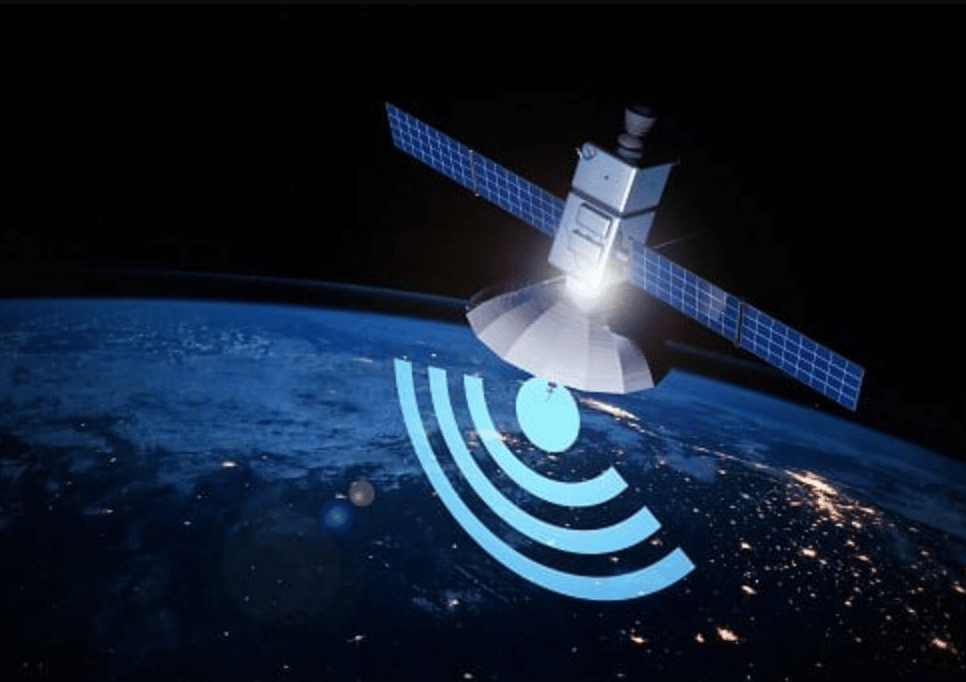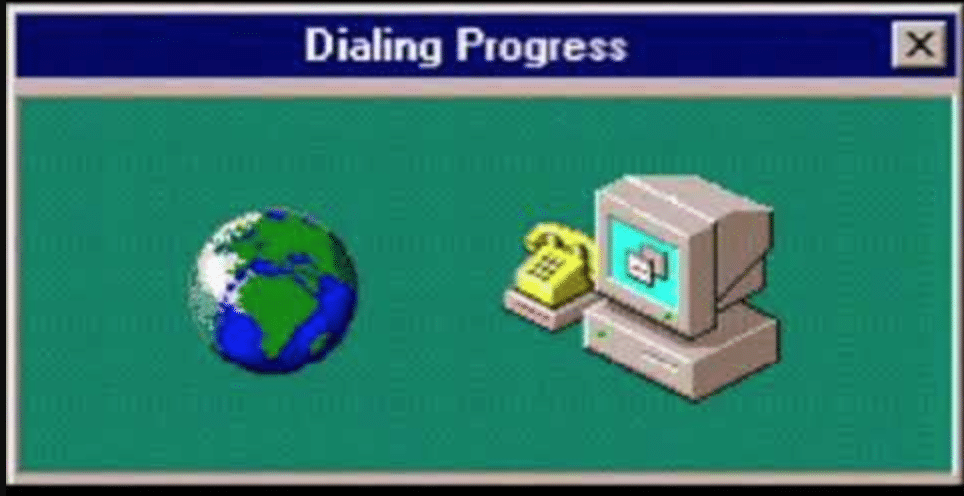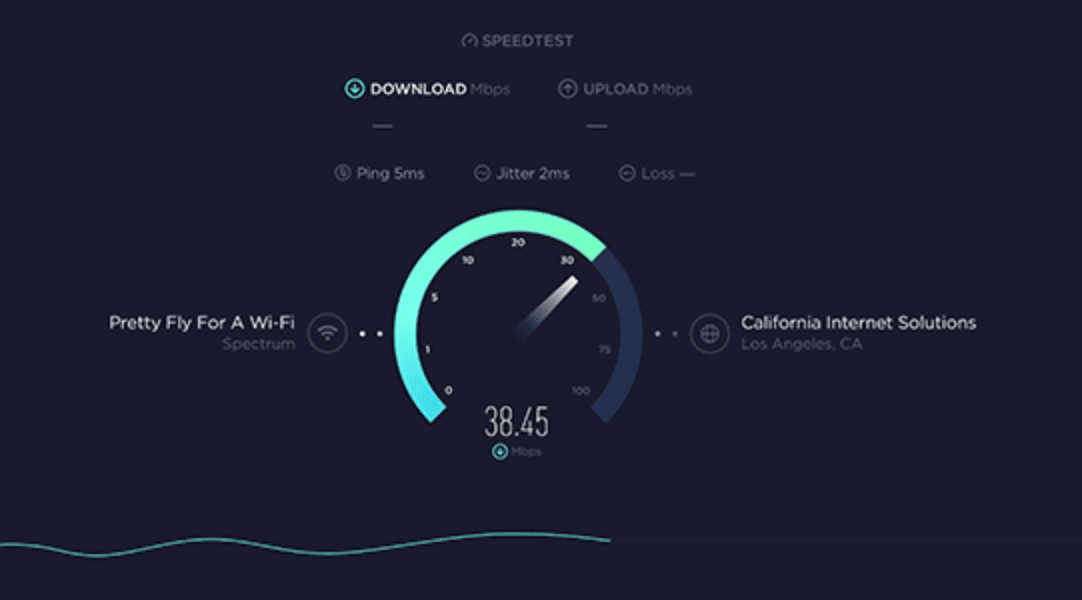Fiber Internet With Different Download and Upload Speeds
Apart from price, internet speed is an essential gene that consumers consider when shopping for internet providers. While the price is straightforward, download speed isn't so here we wanted to offer this easy-to-follow commodity about net speeds explained. The download and upload speeds goes across knowing the monthly charges and plumbing equipment information technology into your upkeep for your target high speed cyberspace programme. With all the talks surrounding gigabit, broadband, fiber, and megabits, it is piece of cake to exist overwhelmed. Sometimes 100 Mbps of download speed is fast enough, while in other cases, it is regarded as tedious net speeds (meet 'Is a 100 Mbps Fast Internet?' and 'Is 200 mbps Fast'). Throttled internet is a thing that's frequently overlooked with internet providers.
Nosotros have created this slice to give y'all a clear understanding of what internet speed entails. The review covers the meaning of internet speed, which is considered fast internet, and how to decide the right rate for you. So, what is a expert internet speed and also, what is the fastest internet speed ? Let's dig in!
What Is Internet Speed, and Why Does information technology Affair?

Internet speed is a lot like h2o pressure; it's well-nigh the volume of moving h2o at a given time. A computer that is connected to the internet receives information from some other through electronic packets. A packet refers to a unit of measurement of data. When many packs are delivering data at the moment, the volume of data volition be high, and so the internet speed will be fast.
Consider the analogy of a showerhead. When only a lilliputian water is trickling out, it may take you forever to rinse out the shampoo. On the other hand, water that is coming out with high pressure makes information technology easy to make clean your hair. Net speed works in the aforementioned way. Ho-hum speed means that you won't stream a video without buffering. Nobody wants that, which is why the demand for faster WiFi speed is loftier because it ensures a smooth internet experience.
How to Measure out Internet Speed
In the simplest terms, internet speeds are measured by how chop-chop you can download or upload content in a second and the most used term is megabits per 2nd (mbps). For many people, download speed (run into 'How to Better Upload Speed') matters more than the upload rate. That is because you download a lot of things like music, streaming shows, browsing online and online gaming. Upload speed comes in when you send or upload big files or agree video conferencing or video calls. In addition, follow this link if yous need upload for gaming mostly.
Both upload and download rates are measured in bits per second. Due to the nature of large upload files, we tend to stick to prefixes like Thou, 1000, and K to tell how many thousands of megabits that one is referring to. The well-nigh used designation is mbps because is more relevant to what many people use the cyberspace for. Internet speed could as well autumn into the ranges of kbps, only those are what we know to be slow internet connections. Gbps refers to ultra-fast speed, which is rare but is slowly becoming more than prevalent than in the by.
You lot can use costless testing tools such as speedtest.net to measure out your internet speed or how much cyberspace speed you are getting from your internet provider.
Is broadband the "National Speed Limit"?
Regulations on internet speeds are relatively new, just many governments are choosing to regulate the internet too. Some recommend that the minimum download should be 25Mbps with a minimum upload speed of 3Mbps. That is a fair baseline to make up one's mind fast and irksome speeds. Those that a take faster net connection than the standard broadband are considered fast internet, while those beneath the bandwidth are deemed ho-hum. Besides what the broadband providers offer, other factors affect the actual performance, and factors touch on internet speeds. Using the connection speeds for demanding tasks like downloading Hard disk drive video or streaming in 4K can strain fifty-fifty the highest rates.
Types of Net and How They Touch the Speed
1. Fiber
Reasonable mbps for fiber - five to 10 Mbps
Information technology is the fastest internet technology available today. To transfer data, it utilizes cobweb-optic cables that tin can transmit large amounts of information fast. Although it is quick, cobweb is not as attainable in most parts of the world compared to other technologies. The biggest hindrance to its development is the loftier cost of edifice the required infrastructure. You can find cobweb broadband availability in your area here.
two. Satellite

Reasonable mbps for satellite - 12 to 100 Mbps
How does satellite cyberspace work? Consumers admission the internet wirelessly from the receiver. However, they must involve wires to transport the signal from the receiver to various locations in the building. Since it is wireless, satellite internet is widely available. Its bandwidth is closer to that of DSL but is often has slower speeds considering of dormancy.
three. Cable
Reasonable mbps for cable – 10 Mbps to one,000 Mbps
Here, the internet is transported through similar cables to those that are used to transmit TV services. Cable internet has a high broadband capacity to attain high speeds. Its speeds are often faster than DSL.
4. DSL
Reasonable mbps for DSL - three Mbps to 115 Mbps
It stands for Digital Subscriber Line. The connection is similar to a regular phone line, only it has advanced wiring that enables broadband manual. Therefore, DSL is faster than dial-upwardly. Well-nigh phone companies, both current and erstwhile, ordinarily offer internet services using this technology and are available in many service areas.
v. Dial-up

Reasonable mbps for dial-upwards - 56 Kbps
It is the slowest connectedness engineering since information technology tin can't back up broadband. Therefore, dial-upwardly oftentimes has express bandwidth. Because of these shortcomings, it is outdated and doesn't exist in about first world countries. It'south the showtime internet connection that was popularized and would often exist interrupted past telephone calls.
What Affects my Net Speed?

- Traffic congestion – Sadly plenty, your net might as well run into congestion. Picture how busy a thruway gets on a regular evening. The more than the data transfer you request at a time, the more than the bandwidth that is required, and consequently, the slower the download or upload speeds. Congestion usually occurs during peak time, such equally when everyone has just gotten home from work or during the weekends.
- Your location – if you reside in a busy urban center or town, you are probable to have cyberspace access to a variety of internet types. People living in cities usually have college broadband speeds than those in rural areas.
- Connection type – connections make up one's mind the speed of your net. Some bandwidths are stock-still and thus cannot be increased while you lot tin widen others.
- Inadequate/old equipment, connections or wires - If you have outdated equipment, yous wouldn't expect it to measure upward to current engineering science. Also, ensure that all your connections are appropriately configured. And if you need a more than detailed read on this field of study, go to our 'Why does my internet speed fluctuate?' postal service.
What Speed is Required in a Household?
17Mbps
- It is perfect for light browsing and downloading in small households
- You lot can utilize it to stream Boob tube
- Good for several internet users
- Information technology takes 30 minutes to download an HD movie
38Mbps
- Platonic for multi-employ
- All-time for families with several devices
- Information technology takes fifteen minutes to download an Hard disk moving picture
- Easy to stream Television receiver
76Mbps
- It is excellent for multi-user and virtually internet users streaming and download
- Ideal for households that value faster speeds
- It takes 8 minutes to download an HD movie
- Suitable for streaming online Television
1. What is a good internet speed?
What is considered a high-speed internet connexion? An excellent cyberspace connectedness speed is at least 25 Mbps. However, fast internet speeds, oft in the 100+ Mbps upload and download speeds range, are frequently preferable, particularly if your cyberspace service will concurrently suit numerous devices and users.
two. What is more important upload or download speed?
For the ordinary internet user, faster download speeds are far more than meaning than upload speeds, as the bulk of online activity is dependent on them. Download speeds, for example, are used while streaming video. Faster upload speeds are important for users that postal service huge files to the cyberspace, such as videos (think YouTubers), simply everyone needs some level of fast upload speed.
3. What is a good home Internet speed?
According to the FCC, the best Internet service provider for households with ii or more connected devices and moderate to heavy net use should offer download speeds of at least 12 Mbps. 25 Mbps are suggested to be the best internet speeds for iv or multiple devices. Homes with four or more users and four or more than continued devices will undoubtedly require maximum download speeds of at least 25 Mbps.
four. Who has the fastest home Internet speed?
In the United states of america, Google Fiber offers the fastest average internet speeds, closely followed by Verizon Fios. These two fiber cyberspace service providers offering remarkable download, upload, and ping speeds. RCN, MetroNet, and Xfinity all offer respectable speeds on an boilerplate basis.
5. What is the Fastest Net E'er?
178 terabytes of information per second.
Researchers in London have developed the world'due south fastest internet, capable of speeds of up to 178 terabits per second, or 178,000 gigabits per second. The speed is double that of any other system now in use on the planet and a 5th quicker than the previous earth record of 150 Tbps held by a team in Japan.
Source: https://www.vssmonitoring.com/internet-speeds-explained/
0 Response to "Fiber Internet With Different Download and Upload Speeds"
Post a Comment